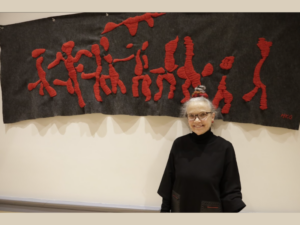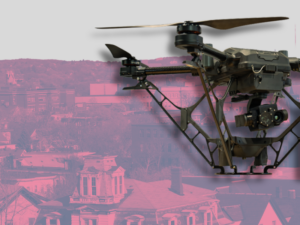Nurses, teachers, other Puerto Ricans in Mass struggle to get professional licenses
When Hurricane Maria devastated her area of Isabela, Puerto Rico, 52-year-old Brenda Trujillo traveled to Holyoke in search of a more stable life and employment.
Trujillo has been a nurse for nearly 30 years, but since arriving on Nov 3 she has not been able to find a job in her profession. One of the reasons is that despite her vast experience, she does not have a license to practice nursing in the state of Massachusetts.
“I have 28 years of experience as a psychiatric nurse and 12 as what you would consider to be an RN,” she said. “I have phlebotomy training and have worked in emergency situations and trauma.”
Many professions, including nursing, require licensure by a state regulatory board. When licensed professionals move from state to state, there are usually clear instructions about how they can acquire the correct certifications in Massachusetts. But with territories like Puerto Rico, this is more vague. Laws of reciprocity, as they are often called, can require education preparation programs, and significant amounts of time and money spent on waiting for approval.
To navigate through the confusing state system, Trujillo headed to a dimly lit room last month at nonprofit Enlace de Familias in Holyoke. The room was packed with displaced Puerto Ricans looking for all kinds of social aid help. MassHealth, Holyoke Community College, the Department of Transitional Assistance, and other groups had representatives at tables waiting to talk to them as their numbers were called.
Trujillo sat with a counselor from CareerPoint, a state-funded organization that specializes in employment assistance. She’s been searching for nursing assistant jobs, or certified nursing assistant jobs, hoping that her most recent recertification for nurse licensure in Puerto Rico in 2015 will be enough to find her a job.
After receiving advice from the counselor, Trujillo is hoping to take ESL classes with the Valley Opportunity Council and to find any job to sustain her until she can take a nursing exam.
Puerto Rico is entering its fourth month after Hurricane Maria, a storm that left millions without power, food, education, and income. The continued lack of electricity and clean water on much of the island is a constant reminder for Puerto Ricans of the inadequate disaster response by the United States government. Hundreds of thousands have flocked to the mainland, and Massachusetts is one of their top three destinations, according to information from the Federal Emergency Management Agency (FEMA). The other two are Florida and New York.
Springfield and Holyoke in particular have had an influx of displaced Puerto Ricans, coming to stay with their families, in hotels, homeless shelters, and with friends. Beyond the question of what to do for housing as winter settles in comes the concern over employment, and more specifically, what to do for people who have licensure and years of education in their professions.
Teachers, health care professionals, hairdressers, and surgeons are among the displaced who have settled into Western Mass. DigBoston interviewed people in these professions and was made aware of several other people who have licensure in Puerto Rico to be truck drivers, cosmetologists, and therapists. But when they arrived to Massachusetts, these trained professionals wondered, “What’s next?”
Massachusetts’ government is trying to find ways to expedite licensure, bypass it temporarily, or adjust reciprocity laws. The need is great. A spokeswoman for the Department of Transitional Assistance said the office has served approximately 6,300 displaced Puerto Ricans, with nearly half of those coming just from Springfield (2,100 individuals) and Holyoke (900 people).
“There is no reciprocity, but it has been a problem for a long time, long before Maria,” said Holyoke City Councilor Jossie Valentin, who works at Holyoke Community College as an academic counselor.
She also said there has never been such an increase of people who needed this issue to be ironed out from a US territory. Most of the licensure issues have happened to Spanish speakers from Central America, she said.
Eduarte Mar, 25 carries a blue binder through the Springfield Welcome Center with his nursing certification paperwork from Puerto Rico, his bachelor’s degree, and his employment paperwork. He proudly says that he thought to put everything in a special compartment of his car before hurricane rains hit his home in Vega Alta.
Mar worked as a nurse for the elderly, specifically people with Alzheimer’s disease, but is trained for what he says is the Puerto Rican equivalent of an RN, with five years at a university. After the hurricane, Mar worked at a center for the elderly, working in a place that only had electricity from a generator 4 hours a day.
“Sometimes, there were 45 patients and one person to cover everyone. There were no ambulances. Roads were hard to pass,” he said.
Since moving to Springfield on Nov 9, Mar is looking for any job he can. He is living at a hotel covered by FEMA until housing relief runs out.
“Washing floors, washing bathrooms, it’s a bad financial situation,” he said.
He has been researching the Massachusetts Board of Registration in Nursing and is trying to figure out what is needed in order for him to sit for an exam. He is taking English classes with a nonprofit twice a week.
Mar was licensed though the Professional Association of Nursing of Puerto Rico, a process involving 60 hours of coursework every two years, a $300 payment, a lawyer, and a lot of paperwork. But in Massachusetts, he can’t get licensed until he takes the National Council Licensure Examination (NCLEX-RN), a state requirement.
“In Puerto Rico, they didn’t have that test. There are no comparisons,” he said.
Hoping to make it to the Board of Registration offices in Boston, Mar is unsure of when it’s willing to meet with prospective licensure candidates and how he will even be able to drive to Boston without a car.
“I’m not really sure of what to do. No one has really told me,” he said.
The Board of Registration is monitoring requests for licensure, according to a statement. In the meantime, Mar continues to volunteer at a welcome center in Springfield that is providing assistance to displaced Puerto Ricans.
Like Mar, many nurses have come to Massachusetts wondering what their options are. Everyone interviewed for this story expressed that it was confusing to figure out what the rules are for license reciprocity in Massachusetts, especially for a US territory. All expressed a desire to see steps outlined in a clear fashion that was comprehensive for nurses of all education levels.
A spokeswoman for the Department of Public Health outlined the guidelines, saying that nurse applications who took a board exam in Puerto Rico in Spanish are not eligible for nurse licensure in Massachusetts by reciprocity, because they did not sit for an exam with the NCLEX-RN. In the rare cases that nurses in Puerto Rico took that exam, they can have the process expedited after obtaining transcripts from Puerto Rico.
Only one testing center in Puerto Rico offers the NCLEX-RN.
Additionally, because they are from a non-English speaking area, applicants must complete a Commission on Graduates of Foreign Nursing Schools evaluation and the Test of English as a Foreign Language. The process can take months and be expensive.
For the remaining licensed professionals, the Massachusetts Division of Professional Licensure oversees management of its 28 different boards of registration, including those of cosmetologists, social workers, plumbers, and veterinarians. The division did not mention any specific plans being put in place for professionals to have clear reciprocity from Puerto Rico to Massachusetts.
Gov Charlie Baker’s press office asked that all press inquiries be directed to specific departments, after being asked specifically what his office is doing to support different departments with licensure reciprocity issues.

Educators have had an easier battle than health care workers.
In Massachusetts, teachers have been granted a pathway to become substitute teachers until they seek licensure, a well-fitting Band-Aid for many instructors, as well as for school districts who are seeking qualified help to handle the influx of Spanish-speaking students moving from Puerto Rico to Massachusetts.
Spokesman Jacqueline Reis at the office of the Massachusetts Department of Elementary and Secondary Education (ESE) shared a statement from Jeff Wulfson, acting commissioner, that was sent out to schools in early December.
In a policy adjustment, the ESE has determined that educators temporarily relocating from Puerto Rico can be considered as exchange teachers and will be exempt from the requirement of Massachusetts licensure for the 2017–18 and 2018–19 school years. She also said that as of Dec 15, the state had more than 2,100 students enrolled from post-hurricane Puerto Rico, with 87 percent of school districts reporting.
The department would prefer that employers verify the license and employment status of these educators, but understands that obtaining documentation may be difficult in storm-ravaged Puerto Rico.
“In such situations, ESE encourages the district to obtain an affidavit or notarized letter regarding the educator’s status as an educator in Puerto Rico,” the department’s statement reads.
 Standard Criminal Offender Record Information and Statewide Applicant Fingerprint Identification Services background checks are also conducted on all soon-to-be teachers. Educators will have one year to pass the Massachusetts Tests for Educator Licensure exams or obtain an appropriate Massachusetts educator license within a year if they seek employment at charter schools. ESE is supporting districts by helping conduct background checks and ensuring the teacher’s license was not revoked in Puerto Rico.
Standard Criminal Offender Record Information and Statewide Applicant Fingerprint Identification Services background checks are also conducted on all soon-to-be teachers. Educators will have one year to pass the Massachusetts Tests for Educator Licensure exams or obtain an appropriate Massachusetts educator license within a year if they seek employment at charter schools. ESE is supporting districts by helping conduct background checks and ensuring the teacher’s license was not revoked in Puerto Rico.
One beneficiary of the policy is Jose Lopez, a displaced Puerto Rican with a bachelor’s degree in special education and history. Lopez, 30, was a year into a master’s program when Hurricane Maria interrupted his studies. After weeks cut off from communication in Salinas, Puerto Rico, he moved to Springfield on Oct 18 and plans to stay for the foreseeable future.
He received help after inquiring about work at the Department of Education in Holyoke.
“This person was so kind and told me to look on the Holyoke Public Schools webpage. They’ve been receiving so many students from Puerto Rico,” he said.
Lopez reached out to the school and, with paperwork and an interview, was hired as a full-time substitute teacher. “They needed someone who speaks Spanish to work with the kids,” he said.
Lopez isn’t planning to return to Puerto Rico, saying that no help has been given to Salinas, his area, and it will take years for things to improve.
With the policy, Lopez will have 17 months to be working toward his teaching certification in Massachusetts.
“I’m going to take English classes here and start the process for the teaching exam and certification,” he said. He’s hoping to continue his master’s degree after fulfilling requirements.
Dr. Steve Zrike is the superintendent of Holyoke Public Schools. He said in mid-December, “It’s really significant for us. We’ve enrolled the most students from Puerto Rico of any school system of the state [by proportion]. We have 5,500 students in the system and enrolled 130 students on top of that.”
Zrike said that the Holyoke School District had employed four Puerto Rican teachers by mid-December and another group as substitutes. The substitutes include a math teacher and an ESL teacher.
The bulk of people with licensure in a profession in Puerto Rico speaking with Careerpoint representatives are nurses and teachers, according to David Gadaire, president of Careerpoint.
“We did have a person who was a surgeon and teaching at a local college in Puerto Rico, and is working here as a certified nurse assistant,” he said. “She desperately wanted to be working, so our staff worked with her. We know that what it takes to get a nursing or medical license is different here than it is there, but at the minimum, can’t we give them a look or a test?” he said.
Careerpoint counselors continue to go to the Enlace center daily to give recommendations on how to find employment for all displaced Puerto Ricans, helping many find immediate low-wage jobs in fast food. They’ve helped 354 people as of Jan 2.
Careerpoint held a job fair with the Holyoke School Department on Jan 10 and is in talks with the Division of Professional Licensure on a similar event for healthcare workers. Even the promise of a career fair is exciting for nurses coming over from the island.
Wilfredo Feliciano, 27, is a surgical nurse who works in Aibonito, a town hit by Hurricane Maria in the mountains of Puerto Rico. Winds took away the roof of his home and washed out the roads he uses to get to work. Feliciano is planning to move to Springfield with family on Jan 5.
He has worked with small practices and graduated from a nursing program in 2009. “I would really like to be a nurse there,” he said by phone from Coamo, Puerto Rico. “I would like to stay over there and create a new home.”
Feliciano said he wasn’t sure of what the requirements were for licensure in Massachusetts, but that he is hoping for all the advice he can get upon arrival.









